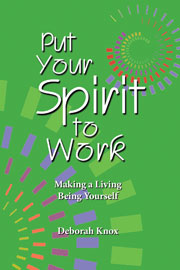Discovering Personal Purpose
On a separate sheet of paper, respond to the following questions thoughtfully and truthfully.
You may also print out the entire exercise on our web site.
- What activities do you enjoy performing? (List why you enjoy them and what is enjoyable about them)
- What are you good at? (list skills, talents, and special knowledges)
- Think of a specific situation in which you felt successful. Describe the time, place, activity. Write what you were doing and how you were feeling.
- Think of a time you did something meaningful, that was satisfying to you. Describe the situation (as in 3 above) and why it had meaning.
- Think of another specific sitatuion in which you felt successful. Describe the time, place, and activity. Describe what you were doing and how you were feeling.
- List three QUALITIES you are proud of … and describe WHY.
- Describe your VISION of an “ideal world” if you could make it happen
Review the above information and circle 15 – 20 key words or ideas. Summarize the key words and select the 10 – 12 that are most important to you and record them here. At this point it is often helpful to share your answer with a close friend. The images you have recorded and the language used describe what is meaningful to you.
To create a purpose statement, use the words in the list you just created to develop a series of “reiterative” statements until you find the one that resonates with you.
My purpose is to
My purpose is to
My purpose is to
My purpose is to
Since purpose is often referred to in soul language, some people like to translate their purpose statement into a metaphor or haiku that summarizes the essence of the statement. To create a haiku you’ll want to arrange the wording from your Purpose Statement to fit the following formula
First line (five syllables) —/—/—/—/—/
Second line (seven syllables) —/—/—/—/—/—/—/
Third line (five syllables) —/—/—/—/—/
Example: Leading, Creating
Fulfilling an Abundant
Universe of Trust
This exercise is adapted from Dave Morrison and Andre de Zanger and presented at the Creative Problem Solving Institute (CPSI) , State University at Buffalo, NY in l985



{ 0 comments… add one now }